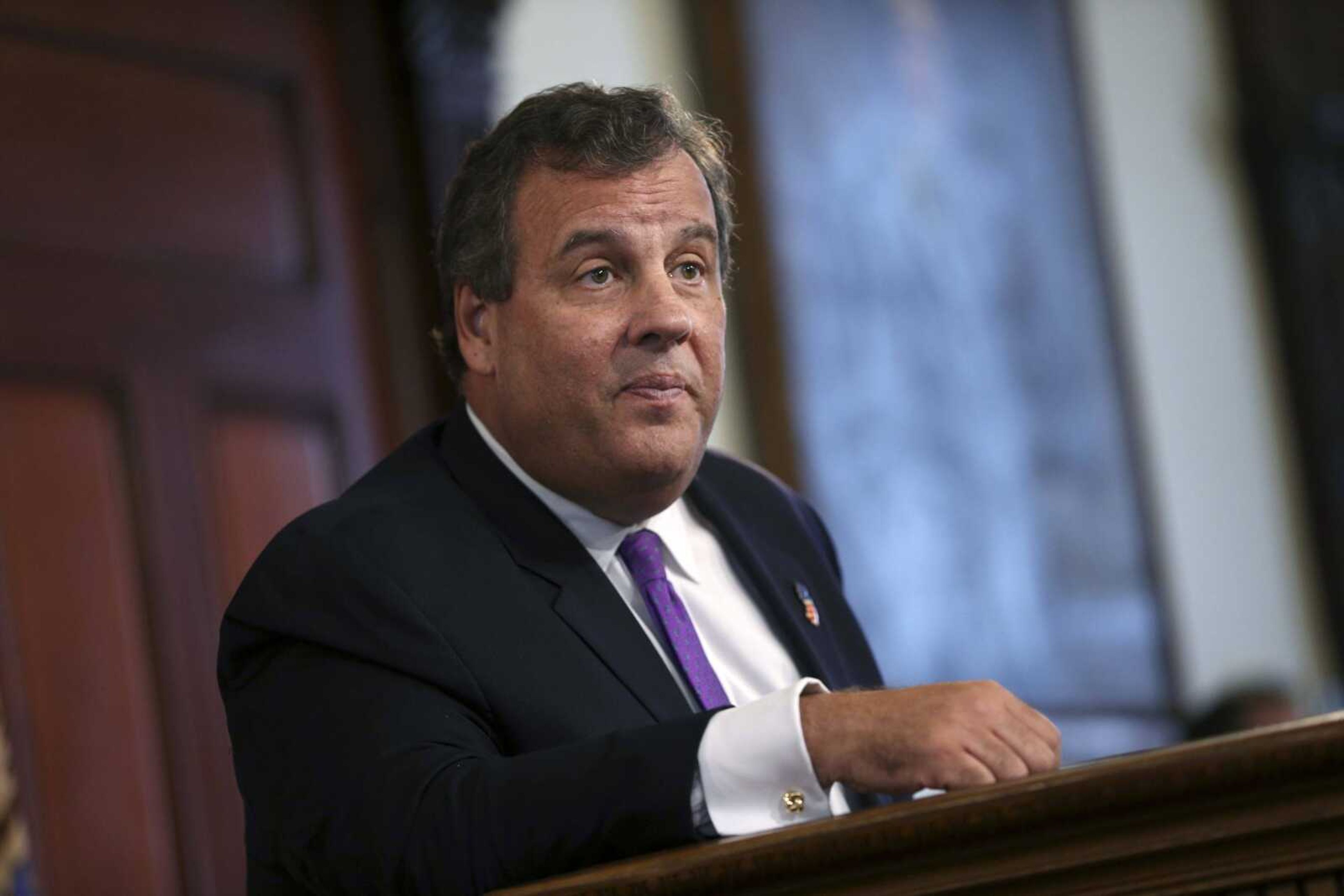Why wasn't New Jersey's Christie charged in 'Bridgegate'?
TRENTON, N.J. -- It was seven days into the trial in the George Washington Bridge lane-closing case when the government's key witness dropped the bombshell: Gov. Chris Christie, he said, was told about the traffic jams while they were going on. Christie, David Wildstein told the jury last week, responded with a laugh and a joke about the role politics played. The accusation blared in headlines across the country and raised one question: Why wasn't the Republican governor charged?...
TRENTON, N.J. -- It was seven days into the trial in the George Washington Bridge lane-closing case when the government's key witness dropped the bombshell: Gov. Chris Christie, he said, was told about the traffic jams while they were going on.
Christie, David Wildstein told the jury last week, responded with a laugh and a joke about the role politics played. The accusation blared in headlines across the country and raised one question: Why wasn't the Republican governor charged?
First, the governor denies he did anything wrong or he knew about the political revenge plot, often dubbed "Bridgegate," Wildstein said was tied to his 2013 re-election campaign.
Then there's Wildstein's testimony, in which he never said Christie was told directly about the plot. Wildstein said defendant Bill Baroni told the governor about the traffic jams, and the mayor wasn't happy he wasn't getting his calls returned. Wildstein testified Baroni told the governor Wildstein was monitoring the situation, and the governor made what he took as a sarcastic joke regarding the "Wally Edge" pseudonym Wildstein blogged under.
Former prosecutors said the answer is pretty simple: There's nothing in that testimony that would be evidence to convict Christie of anything.
David Siegal, a former assistant federal prosecutor for southern New York, said Wildstein's testimony and the photos of the meeting at a 9/11 memorial event don't prove anything. Siegal works at the Haynes and Boone law firm and is not involved in the trial.
"You'd have to have better evidence to charge and convict the governor of the state of New Jersey," Siegal said.
While the government's case against Baroni and former deputy chief of staff Bridget Kelly is built on Wildstein's testimony and electronic communication between them, there hasn't been any information linking Christie directly to it.
Christie said he never knew about the scheme and did not authorize it. He disputed what Wildstein testified to on a radio interview, saying, "Guess what? I know I didn't say that."
Baroni and Kelly's defense lawyers have argued the plot was Wildstein's plan. Kelly's attorney last week took aim at Wildstein's credibility, pointing out on cross-examination instances when he lied.
Baroni and Kelly are on trial over civil-rights and wire-fraud charges they orchestrated the 2013 lane closures as political payback against the Democratic mayor of Fort Lee, the community on the New Jersey side of the busy bridge connecting the state to Manhattan, for not endorsing Christie in his 2013 re-election. They have pleaded not guilty. Wildstein pleaded guilty and is cooperating with prosecutors, hoping for leniency.
Debating what Christie knew and when he knew it about the plot has become a parlor game in New Jersey media and political circles in the nearly three years since the scandal broke open.
Ultimately, only two of his former allies -- Baroni and Kelly -- were charged, while Wildstein pleaded guilty after talking to prosecutors and resigning from the Port Authority of New York and New Jersey, which operates the bridge.
Wildstein also testified others in Christie's administration or with the re-election campaign knew about the plot before it happened or before Christie insisted in a December news conference no one in the administration or campaign was involved.
Randall Eliason, a former assistant federal prosecutor for the District of Columbia, where he led the public corruption section, said prosecutors wouldn't bring charges against high-profile defendants such as a sitting governor without strong evidence. Eliason is not involved in the case.
Guidelines for federal prosecutors include the requirement they should not recommend any charges they can't "reasonably expect to prove beyond a reasonable doubt by legally sufficient evidence at trial."
While Christie is on a list of possible witnesses, he said he doesn't expect to be called to the stand in the trial, likely to last another month.
Siegal said he would be "shocked" if Christie is asked to testify, because attorneys on both sides couldn't be sure what he would say, and that he could end up hurting either side's case.
Connect with the Southeast Missourian Newsroom:
For corrections to this story or other insights for the editor, click here. To submit a letter to the editor, click here. To learn about the Southeast Missourian’s AI Policy, click here.








